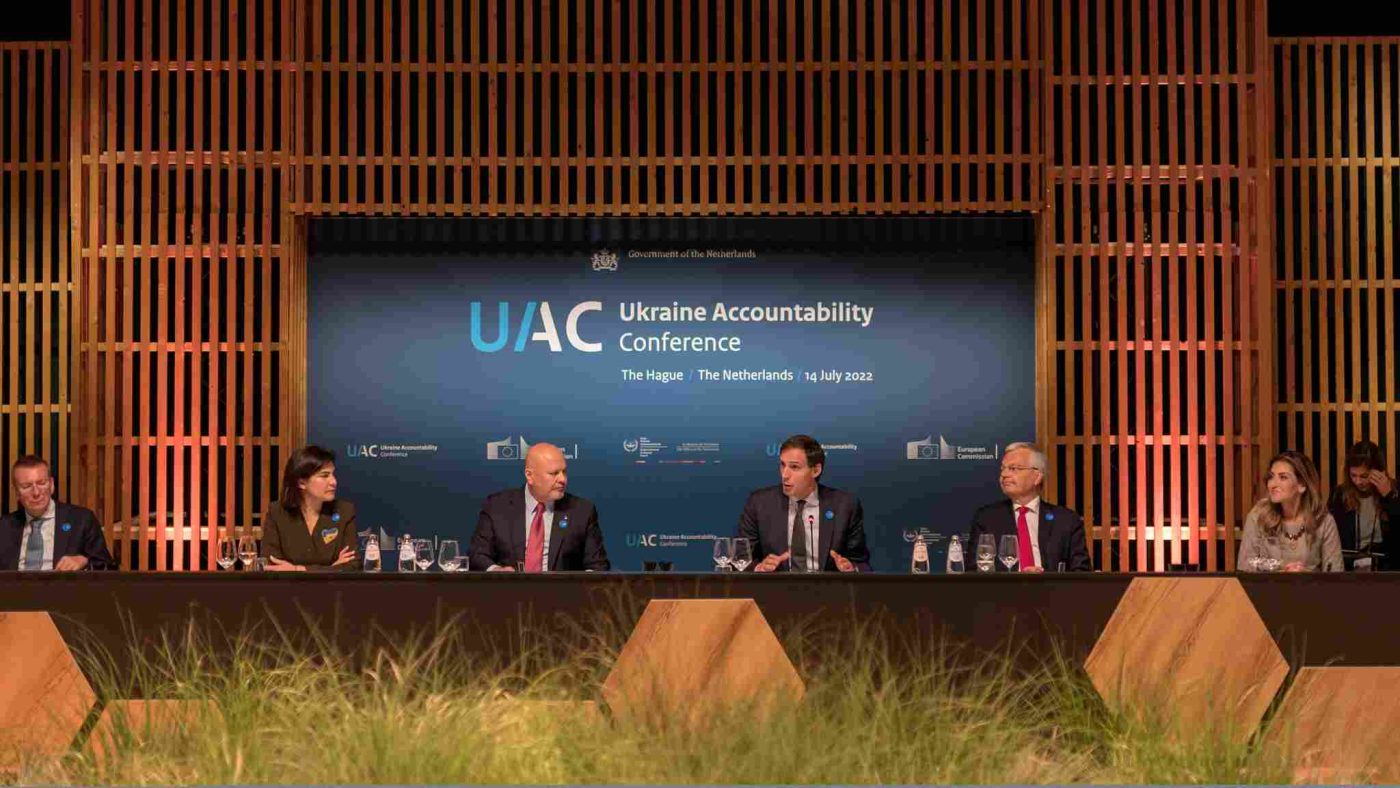Law of war accusations in Ukraine have been rampant since Russia began its full-scale invasion seven months ago. The recent recapture of ground by the Ukrainian armed forces has exposed yet more evidence of atrocities. Not only has Russia initiated a war of aggression in violation of international law, but the long-established rules of the Hague and Geneva Conventions have been trampled in this conflict.
Legally protected civilian targets including schools, hospitals and defenseless columns of fleeing refugees have been repeatedly struck by Russian tube and missile artillery, critical civilian infrastructure including airports, railway stations, power plants, and bridges have been destroyed well beyond any levels that could conceivably be described as collateral damage.
Perhaps worst of all, thousands of prisoners of war and civilian internees appear to have been tortured and executed, giving rise to the investigation of approximately 27,000 human rights violations, which strongly suggests a planned genocide by Russian authorities. Additionally, perhaps more than a million Ukrainian residents have been forcibly removed from their homes and deported east into Russia.
While world attention is understandably turned to the armed struggle currently taking place on the battlefields of Ukraine, the international community cannot and must not ignore these grave violations of international law. There is an obligation to uncover and address such violations and bring the perpetrators to justice. If we have learned anything since the Nuremberg War Crimes trials, it is that failure to enforce international law only encourages continued violations, often worsening, which are profoundly dangerous to the peace and order of the entire planet.
Our rules-based system has developed extensively over the past 150 years. Ironically as it turns out, the modern codification of international humanitarian law (formerly the law of war) began with the St Petersburg Declaration of 1866 where diplomats and military officers met to reduce and eliminate unnecessary human suffering during armed conflict and agreed to outlaw self-fracturing small caliber projectiles (so-called dum-dum bullets.)
In the following 60 years, the world community evolved considerably to proscribe reasonable limitations on the conduct of military operations — the Hague Conventions — and further, agreed on rules requiring minimum standards to protect human beings, both military and civilian, who were at risk during hostilities — the Geneva Conventions.
The rapid development of newer and more destructive weapons and the employment of more modern military tactics during the early 20th century has spurred further refinements in the rules of war (Hague) and humanitarian law (Geneva) and given rise to several later protocols and common articles to these rules which we collectively refer to as the Humanitarian Law Regime. At the conclusion of World War ll, the victorious Allies created war crimes tribunals to mete out justice to individuals who violated these accepted rules of international behavior. No longer would an individual escape culpability for their criminal acts by relying on the excuse of following orders, or be absolved by their own states’ ignoring unlawful conduct. From then on, each individual actor, even in wartime, was deemed by law to be individually responsible for obeying “the laws and customs of war” and subject to the new proscription against genocide.
From 1927, the International Commission of Jurists considered the establishment of a permanent court to address the laws of war, although it took more than 70 years before the International Criminal Court (ICC) was finally created under the auspices of the United Nations in 1998, through the Treaty of Rome.
But while it has jurisdiction over war crimes, the situation in Ukraine involves impossible case numbers. And we will likely see these rise by several orders of magnitude, which is far beyond the caseload capacity of the current ICC with its 15 sitting jurists. The international community should minimally expect several hundred trials given the volume of events witnessed to date.
The attack, invasion, targeting, and execution of civilians with genocidal determination all constitute grave violations of international law. These actions by Russian armed forces and Russian-directed forces recruited in occupied areas of Ukraine are a direct challenge to the international community and our maintenance of the rule of law. The survival of the international order is clearly at risk and must be reestablished both by institutions of collective security, such as NATO and the United Nations, and by law-based action to ensure accountability.
We must create an international tribunal to bring the criminals to justice, lest we abandon our values, ignore our history, and surrender to chaos.
The survival of the modern world is being sorely tested in Ukraine by force of arms, but make no mistake the rule of law is also under assault, which may represent a sterner test. Russia’s attack on the rule of law does not present a target for a Javelin missile or a HIMARS system, but goes directly to our identity and our character.
The West has taken the lead in developing international law, together with the leading juridical and deliberative institutions of our time. It may well be time to consider a Special International Tribunal for Ukraine to protect our future before it is too late.
Dr. J. Holmes Armstead is a retired US Naval War College professor and former US Army Judge Advocate General (JAG) officer. He has taught international law at numerous American and European law schools including National University, Ukraine. He also served as Legal Expert at the UN Secretariat where he was the English language editor of the ICC Treaty of Rome.
Footnotes
The International Criminal Court lacks the capacity to deal with the sheer scale of Kremlin-endorsed abuse in Ukraine. We must consider a new tribunal.




